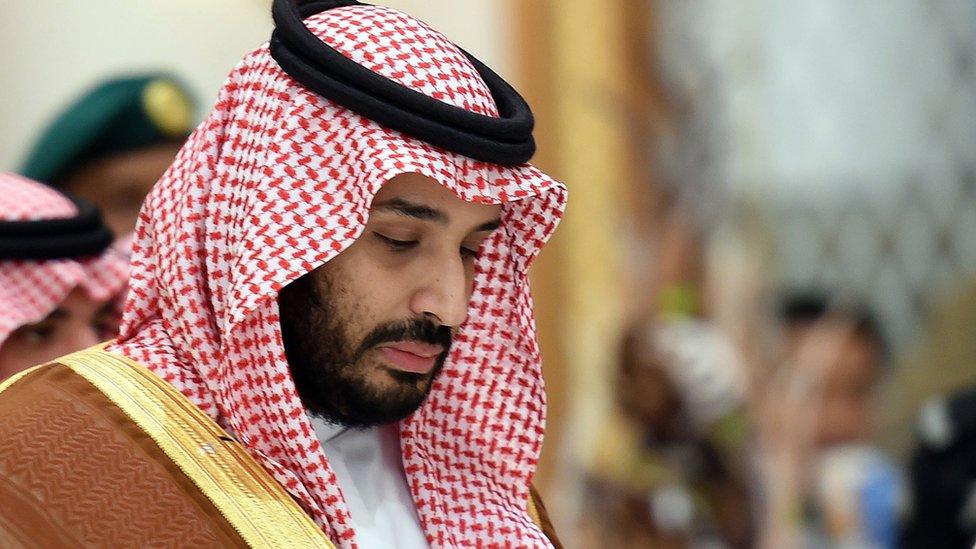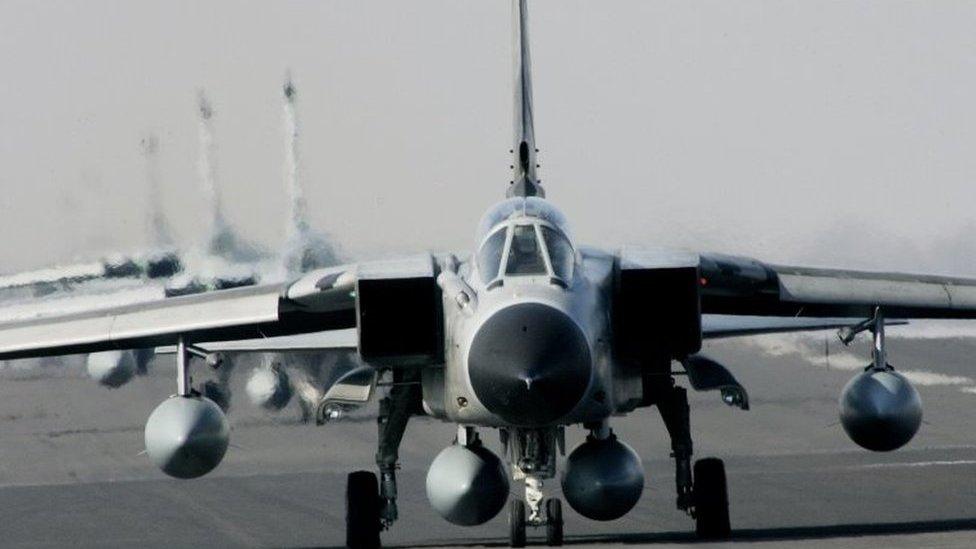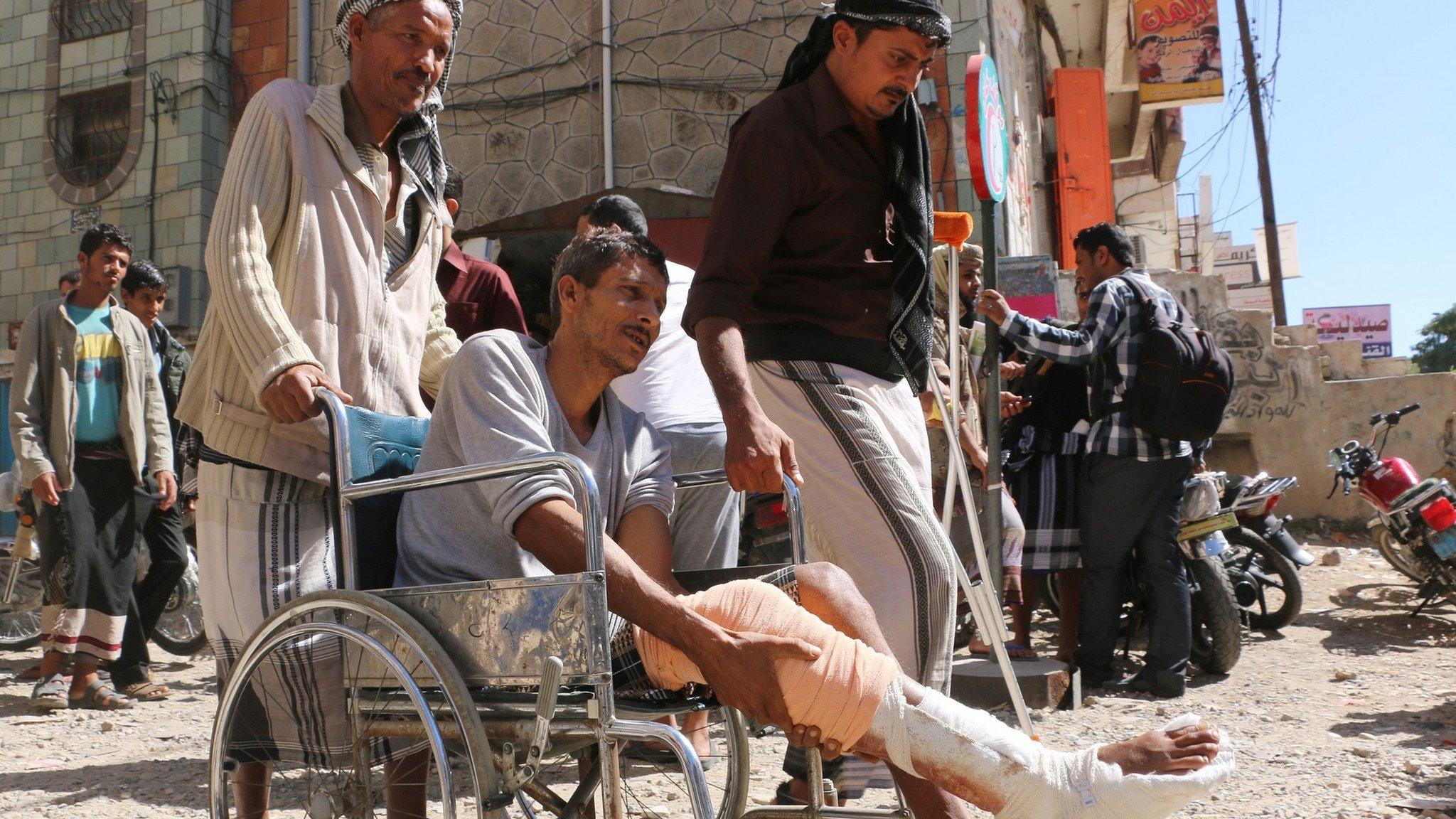Germany scolds BND spy agency over Saudi criticism
- Published

The spy agency singled out the role of Saudi Defence Minister Mohammed bin Salman
The German government has publicly rebuked its own foreign intelligence agency after the BND suggested that Saudi Arabia's foreign policy was becoming more "impulsive".
The agency was particularly critical of the Saudi defence minister.
Officials in Berlin reacted after the Saudi government reportedly complained about the BND's frank assessment.
"The published assessment does not reflect the position of the German government," a spokesman said.
Saudi Arabia was an important partner "in a crisis-ridden world" and had great significance "especially on the way to peace in Syria", the spokesman insisted.
Anyone seeking a regional solution needed constructive relations with the Saudis, who were supporting rebel groups in the fight against the militant Islamist State (IS) group, he added.
The BND briefing, which emerged in German media, assessed changes in Saudi foreign policy since King Salman took power in January, including its military intervention in neighbouring Yemen and its decision to ramp up support for rebels in Syria. Saudi policies in Lebanon, Bahrain, Iraq were also cited.

A Saudi-led coalition began a military campaign to restore Yemen's government in March this year
"What was previously a cautious diplomatic stance of the elder leaders in the royal family is being replaced by an impulsive policy of intervention," the briefing said, adding that the Saudis were losing faith in the United States as a guarantor of regional peace.
It also singled out the king's son and defence minister, Deputy Crown Prince Mohammed bin Salman, whom it suspected of holding ambitions of securing the royal succession.
Relations between Germany and the Saudis have become tense in recent years, analysts say, because of Berlin's decision to tighten restrictions on arms contracts and to speak out on human rights.
The German coalition government agreed this week to take part in a supporting role in the fight against IS militants in Syria.
A vote in the Bundestag on Friday is expected to back the mission, which involves Tornado reconnaissance aircraft, a naval frigate and a 1,200-strong force.
- Published1 December 2015

- Published2 December 2015

- Published3 December 2015

- Published28 October 2015
